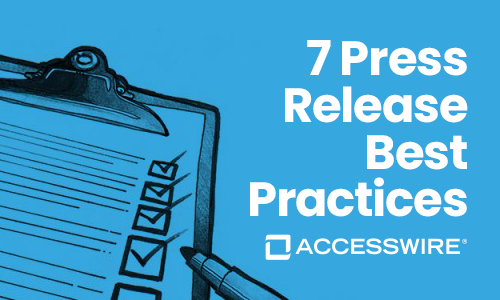The Importance of Diversity, Equity, and Inclusion (DEI)
Within the last 22 years, the business world has evolved more radically than at any other time in history. Think about it: When this century began, you may or may not have had a cell phone – and no one had a smartphone; the fax machine was an office staple; companies around the world were just beginning to fully understand how websites could be used as a PR and marketing tool; Mark Zuckerberg had not even invented Facebook. There was no such thing as a blog or a vlog, and holding a meeting between people in separate locations via our computer screens was something that only existed on The Jetsons cartoon.
Those examples are just a drop in the proverbial bucket of the Business Revolution that has been taking place in the last 22 years; in fact, the above list of changes all involve technological advances that we have embraced in our everyday work lives. There has been an equally powerful and promising change within companies worldwide: The implementation of Diversity, Equity, and Inclusion (DEI) initiatives.
The definition of DEI does not exist in any dictionary or encyclopedia, and it’s safe to say that no two DEI programs are just alike; however, understanding what DEI in the workplace means, and how such initiatives can improve the way the world looks at a company, can help an organization roll out a program that carries a strong value proposition to its current and future employees, shareholders and investors, and ultimately, its bottom line. Forming a diverse team barely scratches the surface of DEI. DEI initiatives also recognize and give voice to any underrepresented group in the organization, which is vital to workforce development and employee engagement. Ultimately, the goal of DEI initiatives is to create an inclusive workplace environment.
What is Diversity, Equity, and Inclusion in the Workplace?
Here, we will begin to understand the three pillars that make up DEI.
- DIVERSITY describes the existence of differences within a group of people. Members of a diverse group consist of people with differing physical, social, psychological, and cultural attributes.
- EQUITY in the workplace provides employees with the same level of treatment, opportunity, salary, and advancement as their colleagues, regardless of race, gender identity, and sexual orientation, thereby removing any obstacles that could otherwise limit participation; a common example of workplace inequity is wage disparity between men and women.
- INCLUSION is the result of employees with diverse backgrounds and identities feeling that they are a valued part of an organization; a company can still have diversity, but that does not automatically mean all employees feel welcome, accepted, or appreciated at work.
Together, these three separate practices within a corporate setting serve to strengthen each other for outcomes that result in all employees being part of a fair, supportive, and professionally respectful organization. DEI initiatives allow employees to show up to work without the fear of being judged, targeted, or excluded.
Why is DEI Important?
Within recent years, there have been numerous studies that indicate the importance of DEI in the workplace, and the findings indicate that companies who commit to injecting DEI into their cultures were better off across the board than organizations who did not implement such measures.
One report, called Unrealized Impact 2.0, was a study released by Promise 54 and revealed that “Diverse teams are more innovative and make better decisions, and the diverse companies have better shareholder returns.”
McKinsey & Company, in a partnership with the Society for Human Research Management, released a study that looked at the performance of organizations that had different tiers of workplace diversity. Companies with gender diversity were 15 percent more likely to outperform those without it; similarly, organizations with ethnic diversity were 35 percent more likely to perform at a higher level than their peer companies. Organizations with more racial and gender diversity could prove they were more successful in sales revenue, more customers/clients, and higher profit margins.
Many studies show that although DEI initiatives in the workplace were not considered widespread practice within the corporate world, companies with DEI commitments within their organizations tended to have a more favorable brand awareness across all sectors of those polled; additionally, employees where DEI practices existed reported elevated levels of job satisfaction, compared to employees where DEI initiatives were not a priority.
Overall, most studies conducted within recent years conclude that organizations with strong DEI practices were viewed by study participants as stronger than those without a commitment to Diversity, Equity, and Inclusion initiatives.
How DEI Can Enhance All Levels of a Company
Learning how to promote Diversity, Equity, and Inclusion in the workplace has numerous benefits. High morale and job satisfaction are not the only benefits of a DEI program – increased engagement and trust among employees are cited as added benefits to the overall health and well-being of an organization. Employees in non-managerial roles are not the only ones who benefit from a commitment to Diversity, Equity, and Inclusion. Consider other levels of an organization that can reap the rewards of a DEI culture.
TEAMS
Employees who work in a team cluster are 158 percent more likely to understand customer segments when at least one member of the team represents the age, gender, race, sexual orientation, or culture of those customers.
MANAGERS
Studies show that organizations whose management teams are more diverse earned 38 percent more in revenue compared to those with less diversity. One possibility for such a disparity could relate to innovations that gender, ethnicity, and other variables, bring to the equation.
C-LEVEL
Companies who rise to the top 25 percent in gender diversity among executive leaders were 21 percent more likely to have higher profits than competitors without practicing DEI and were 27 percent more adept at creating value for their organization and their shareholders/stakeholders.
Tell The World About Your DEI Initiatives
If you want to progress and expand your organization, include DEI goals within your workplace. Inclusive leadership can not only lead to a more diverse workforce but also a diverse talent pool. If your company has committed to a program of Diversity, Equity, and Inclusion, every part of your business stands to benefit by sharing your news. Whether your audience is the public, investors, stakeholders, or jobseekers considering your company as an employer, your commitment to a DEI program is worthy of notice.
ACCESSWIRE encourages companies to distribute press releases throughout the year with updates and information about your program. Click here if you would like to schedule a demo of our Press Release Distribution Service.
Similar Blog Posts
PRODUCTS
ACCESSWIRE | All Rights Reserved




